It’s not surprising that immigration, migration, and the associated questions of belonging are rife in science fiction and fantasy. Maybe the most fundamental trope of the genre is travel to another world, whether through space, time, or alternate universes. Protagonists might travel for exploration or on desperate missions or crash land or fall through a portal and find themselves suddenly outsiders in an utterly strange place. Or they might be faced with immigrants—aliens, fae, time-travelers, off-shoots of humanity—in their own world. What makes it particularly potent is that often the reader experiences the disorientation and fascination of migration along with the character(s). Our process of figuring out the world-building mirrors the process of slowly learning about a new place, giving us an extra layer of identification and connection.
These stories in speculative fiction also give us a way to think about the challenges of migration and outsiders without being tied to specific examples in real life that readers might already have preconceptions about. (This can go badly wrong, of course, when fictional species are mapped onto stereotypes of IRL groups.) Readers can focus on the situation and potentially identify with characters they might see as irretrievably distant from themselves if they were given identities familiar from news reports or histories.
Here are a handful of books that illustrate different elements of immigration and the Othered status of the migrant. (It was really hard to narrow this down to five, so I squeezed in six and could have done a lot more).
The Star Beast by Robert Heinlein
There are probably a lot of Heinleins that would fit into this, but I’m particularly fond of The Star Beast. I haven’t read it since I was a teenager, so it’s likely more problematic than I remember, but my recollection is of a sweet story that flips a lot of assumptions about sentience, superiority, and who is in charge of whom. The book plays with a lot of assumptions about aliens, most obviously with the big and friendly beast variously seen as a threat or a prize or a pet. Another character has a phobia to an element of a different alien’s physiognomy, and struggles to control it in full knowledge that it is their own problem and not reflective of the alien at all.
Buy the Book
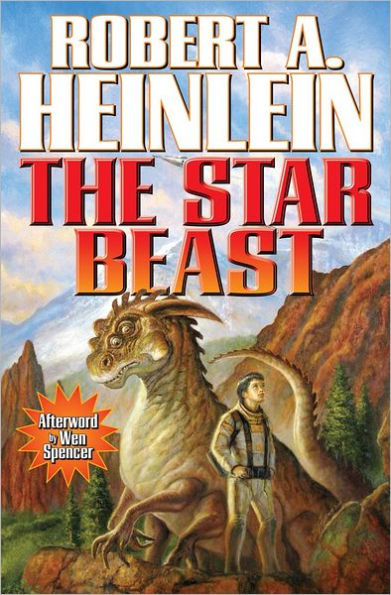

The Star Beast
Ink by Sabrina Vourvoulias
I’d be remiss in writing about SFF and immigration without mentioning this intense, powerful, and all-too-believable book. It tells the terrifying, familiar story of a country slowly and violently turning against immigrants through many different perspectives: immigrants, descendants of immigrants, and native-born; people who feel like part of the system until they’re expelled by it and people who never feel like they belong.
Buy the Book


Ink
Ancillary Justice by Ann Leckie
There’s obviously a lot going on in this excellent book, but I keep coming back to the moment when Breq returns to Radch space and feels the relief of no longer needing to guess at foreign cultural norms, the home-ness of understanding the unspoken and implicit. It’s a great moment, but what makes it even more interesting is the fact that Breq is considered an outsider within the Radch, a non-citizen. This is a powerful example how you can be Othered by the place where you feel most at home.
Buy the Book
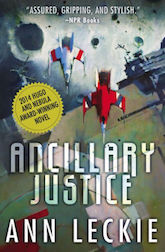

Ancillary Justice
A Memory Called Empire by Arkady Martine
This book echoes that combination of familiarity and foreignness from another perspective, using Martine’s deep academic understanding of the ways of empire. The main character comes from a space station on the periphery of empire and has studied the language, art, and literature of the central culture her whole life on the way to becoming an ambassador. She is constantly aware that she will never fit in perfectly, and that her aspirations to do so aren’t exactly healthy, and yet she cannot help relishing the intricacies of this culture that is both foreign to her and a deep part of her identity.
Buy the Book
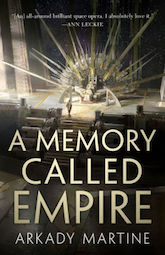

A Memory Called Empire
An Accident of Stars by Foz Meadows
This is a great portal fantasy with a lot of twists, but one of the things I find interesting about it is the dynamic between someone from our world who has been living in the fantasy for a long time—with some back and forth—and a completely new person. With points of view from both (as well as from other characters), we see how a new immigrant can change remind a longer-term immigrant of some of the differences they’ve forgotten, as well as about how difficult it can be to help someone else acclimatize, even with the best of intentions.
Buy the Book
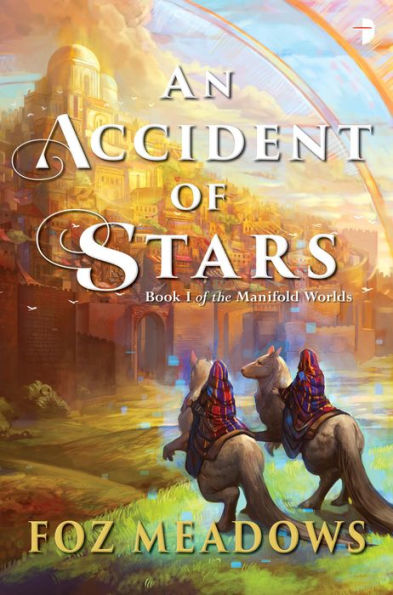

An Accident of Stars
The Best of All Possible Worlds by Karen Lord
I love this book about the resettlement of intergalactic refugees and the deep questions about integration, cultural preservation, and the complications of romance across cultures. The main character is an official in a government very different from our own involved in welcoming a group of refugees from a planetary catastrophe. Trauma, assimilation, empathy, and cultural difference are all elements of how the characters navigate their own identities as well as their roles within unfamiliar societies.
Buy the Book
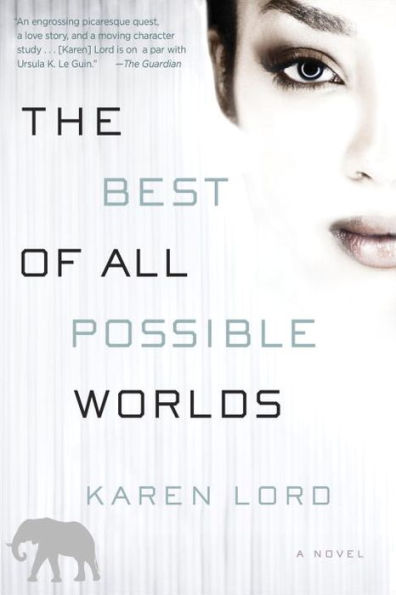

The Best of All Possible Worlds
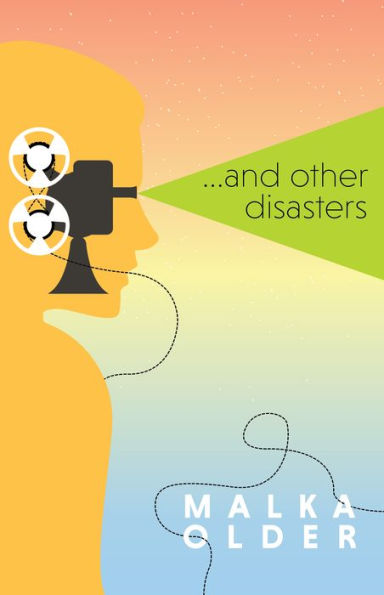 Malka Older is a writer, aid worker, and sociologist. Her science-fiction political thriller Infomocracy was named one of the best books of 2016 by Kirkus, Book Riot, and the Washington Post. The Centenal Cycle trilogy, which also includes Null States (2017) and State Tectonics (2018), is a finalist for the Hugo Best Series Award of 2018. She is also the creator of the serial Ninth Step Station, currently running on Serial Box, and her short story collection ...And Other Disasters comes out on November 21 2019. Her non-fiction writing has appeared in The New York Times, the Nation, Foreign Policy, and NBC THINK. Named Senior Fellow for Technology and Risk at the Carnegie Council for Ethics in International Affairs for 2015, she has more than a decade of field experience in humanitarian aid and development. Her doctoral work on the sociology of organizations at Sciences Po Paris explores the dynamics of post-disaster improvisation in governments.
Malka Older is a writer, aid worker, and sociologist. Her science-fiction political thriller Infomocracy was named one of the best books of 2016 by Kirkus, Book Riot, and the Washington Post. The Centenal Cycle trilogy, which also includes Null States (2017) and State Tectonics (2018), is a finalist for the Hugo Best Series Award of 2018. She is also the creator of the serial Ninth Step Station, currently running on Serial Box, and her short story collection ...And Other Disasters comes out on November 21 2019. Her non-fiction writing has appeared in The New York Times, the Nation, Foreign Policy, and NBC THINK. Named Senior Fellow for Technology and Risk at the Carnegie Council for Ethics in International Affairs for 2015, she has more than a decade of field experience in humanitarian aid and development. Her doctoral work on the sociology of organizations at Sciences Po Paris explores the dynamics of post-disaster improvisation in governments.










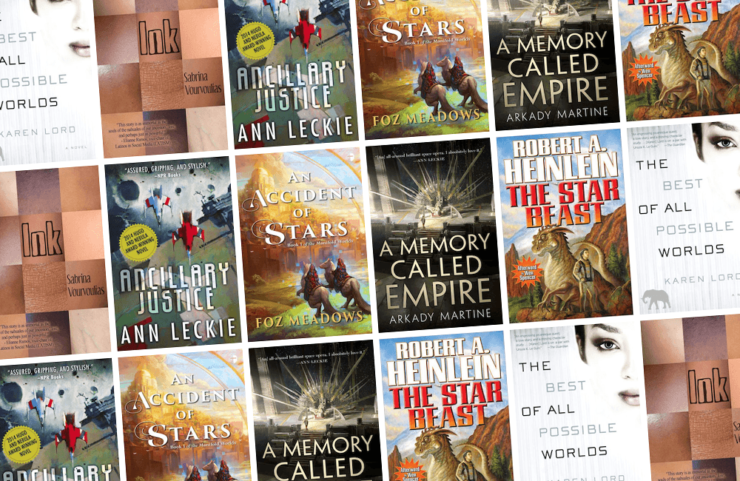
Let me mention one of the best Hungarian sci-fi book of this decade: Xeno by Brandon Hackett (Botond Markovics) is all about migration.
Here’s a short summary taken from this list about the most interesting European SFF books from this decade:
“Few decades into the future, an armada of alien spacecraft appears in the solar system. The aliens (called ‘migrators’ by earthlings) conquered the planet and opened portals to three different planets, populated by civilizations utterly different from humanity. The unseen migrators force a million members of each race to move to the other planets. That has been the order of the world for decades now. Olga Ballard – the daughter of the famous xenologist Ben Ballard – is destined to become a brainwashed Speaker of the migrators, but with help from the resistance movement, she flees. She and a selected team of soldiers and academics try to find the answer for the final question: who are the migrators and what is their purpose? Hackett’s take on the topics of migration and xenophobia in this far-reaching space opera is chilling, entertaining and gripping: once the action starts, you cannot put it down for hours, until the surprising twists at the end.”
I also suggest Susan Palwick’s Necessary Beggar, which deals with these issues, but is set in the US, so while speculative, likely didn’t quite fit this article neatly.
Wormwood by Terry Dowling is one of the most frustrating examples I know of a book that should be well known, but isn’t. The edition that I read (thanks to Mark Ziesing’s online catalog) is from Australia’s late, lamented Aphelion Publications. It was published in 1991. As far as I know, that is the only edition. A collection of linked short stories, it was never released in the US or the UK (isfdb backs that up). An extremely advanced alien race called the Nobodoi drops a fragment of a neutron star on the Earth, creating massive changes to the planet. Hence the title, which references Revelations 8:11. We never see the Nobodoi, but three of their client races move in and take over. Each of their client races has client races of its own, so the planet is a hodgepodge of different alien races interrelating and living under different political and colonial systems. The remaining humans try to live and profit in their shadow. Terry’s prose style is exceptional. He’s been compared to both Jack Vance & Cordwainer Smith, and this book gives plenty of the reasons why. Harlan Ellison was a fan and provides an introduction to the book. It ain’t gonna be easy to find an affordable copy, but it’s well worth it.
How about “The Martian Chronicles” by Ray Bradbury?
@2,
I agree. The protagonists from Necessary Beggar are in the US, but came from another planet, so they should count. Plus it’s such a wonderful book.
The characters choices, particularly the daughter’s, rang very true to what I see with my immigrant/first-generation students.
Alistair Reynolds’ Poseidon’s Children series spends quite a bit of time on a mass migration to a planet of a relatively nearby star (which, exactly, I forget).
The best portuguese science fiction novel, “Terrarium” (João Barreiros and Luís Filipe Silva, 1996), has an interesting take on the migration theme, imagining a refugee fleet of many different alien species arriving and exiling themselves on Earth, and the impact it had both on them and on the planet’s native inhabitants. Looking back, it seems strangely prescient. It’s too bad it has never been translated into English.
Becky Chambers’ Wayfarers series definitely fits the topic, in particular, the third book, A Closed and Common Orbit.
Octavia Butler: Parable of the Sower.
“intergalactic refugees … from a planetary catastrophe”? Why?